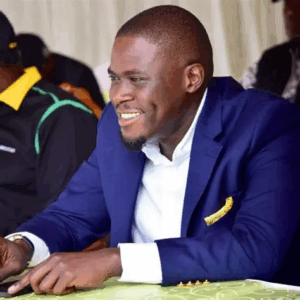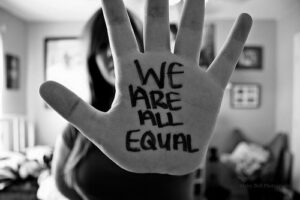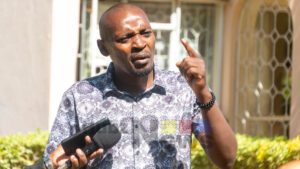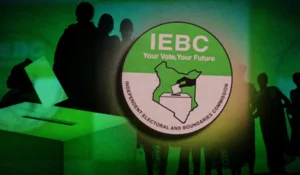Opinion: Political Double Standards in Kenya’s Protest and Political Speech
Legal experts and civil society leaders have echoed similar concerns, warning that the inconsistency in political responses is eroding public trust.
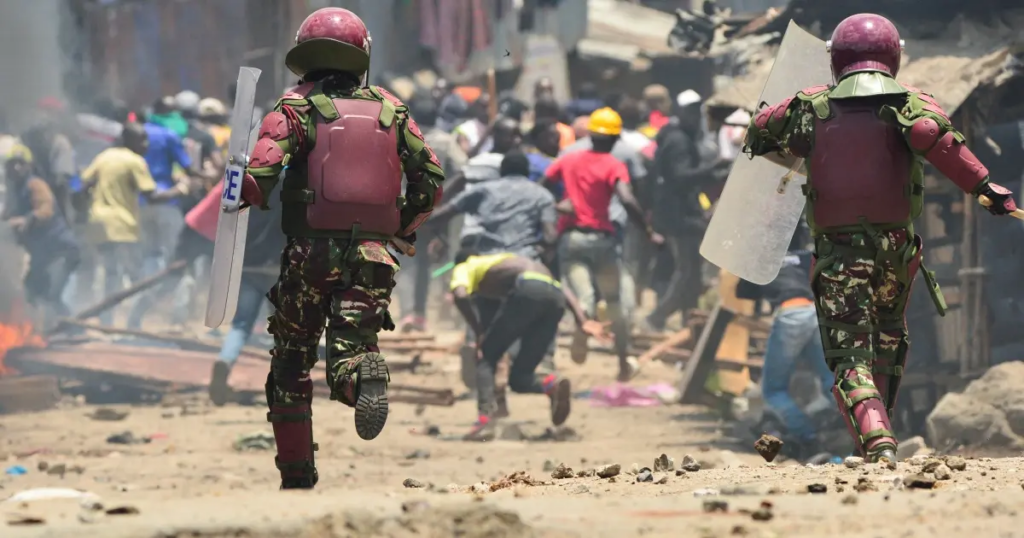
Riot police disperse Azimio La Umoja One Kenya Alliance supporters during nationwide protests over the high cost of living and alleged 2022 election fraud, in Mathare, Nairobi, on March 27, 2023. PHOTO/ REUTERS.
By Mercy Chelangat
Who is being treated fairly under the law? What does justice mean in Kenya today? These questions came to the forefront after two striking events unfolded just days apart.
On June 26, Rangwe MP Lilian Gogo, while addressing Parliament, reportedly said she would personally burn down a police station if Deputy President Rigathi Gachagua was arrested and held there.
A week later, on July 3, the government and local leaders harshly condemned residents in Homa Bay who torched the Mawego Police Station during the funeral procession of 31-year-old blogger and teacher, Albert Ojwang. The contrasting reactions exposed what many are calling clear political double standards.
A Death That Sparked a Movement
Albert Ojwang was arrested on June 7 in Homa Bay over alleged defamation of a senior police officer. He was transferred to Nairobi’s Central Police Station—without a formal court process—and by June 9, he was dead.
The initial police claim suggested Ojwang had harmed himself in custody. However, an autopsy by state pathologist Dr. Bernard Midia painted a different picture: blunt force injuries, neck compression, and other signs of assault. These findings ruled out suicide and strongly indicated malicious action.
The public response was swift and emotional. Protests erupted across the country, especially among young Kenyans demanding answers. In Nairobi, protestors marched through the Central Business District.
In Kisumu, Nakuru, and Homa Bay, similar scenes unfolded. Demonstrators chanted “Justice for Ojwang” while denouncing police brutality. Reports later revealed that at least 16 protestors were killed during nationwide demonstrations against police violence.
A Fiery Farewell in Homa Bay
On July 3, Ojwang’s body was returned home for burial. As part of the funeral procession, mourners carried his coffin to Mawego Police Station—where his ordeal had begun. What started as a symbolic gesture turned violent. In a moment of collective anger, the station was set ablaze. Officers on duty were forced to flee. Parts of the station, including the officer-in-charge’s office, were destroyed.
Homa Bay County Police Commander Lawrence Koilim condemned the incident, describing it as a “dangerous and unlawful attack.” Local leaders, including Governor Gladys Wanga, also spoke out. “We have never seen demonstrations where people burn police stations and attack officers,” she said. “These individuals do not mean well for Kenya.”
The MP’s Comments That Sparked Outrage—But No Consequences
Just a week before the Mawego incident, MP Lilian Gogo made her own fiery statement on the floor of Parliament. Addressing the rising political tension, she said Gachagua should be arrested, and if that happened, she would personally set the police station holding him on fire. Her words were met with laughter and applause from some fellow lawmakers—but no disciplinary action, no arrest, no public rebuke from the government.
This lack of response did not go unnoticed. Critics were quick to ask: Why is violence from youth protesters condemned, but threatening speech from a lawmaker ignored? On social media and in interviews, many Kenyans called it hypocrisy. “An MP can threaten arson and walk away free,” one youth activist noted, “but if we express our pain, we’re called thugs.”
The Bigger Picture: Other Similar Cases
The Homa Bay fire wasn’t the only act of protest-related violence. In late June, youths in Nyandarua County torched the Ol Kalou Police Station after an officer allegedly shot a man dead. That incident received far less media attention and no high-level political statements. To many, this reinforces a troubling trend: whose pain is acknowledged, and whose is ignored?
What This Means for Justice and Trust
Law Society of Kenya President Faith Odhiambo called Ojwang’s death “an abuse of power and a violation of basic human rights.” She demanded that all officers involved in his arrest and transfer be investigated. “This cannot be swept under the carpet,” she said. “There must be accountability at every level.”
Legal experts and civil society leaders have echoed similar concerns, warning that the inconsistency in political responses is eroding public trust. If lawmakers can make violent threats without consequence, while citizens are punished for reacting emotionally to injustice, what message does that send?
What Kenyans Want
From Nairobi to Homa Bay, Kenyans are demanding more than just statements. They want:
Equal treatment under the law – No more protecting political elites while punishing citizens.
Transparent investigations – Into both Ojwang’s death and the Mawego station fire.
An end to impunity – So that justice applies to everyone, regardless of power or party.
The death of Albert Ojwang, and the reactions it provoked, have become more than just a local story. They have sparked a national conversation about the rule of law, accountability, and fairness in Kenya. As protests continue and investigations unfold, many are watching closely to see whether the government will apply the law equally—or whether double standards will remain the norm.
If Kenya hopes to rebuild public trust, citizens say the answer is clear: Justice must not be selective.


